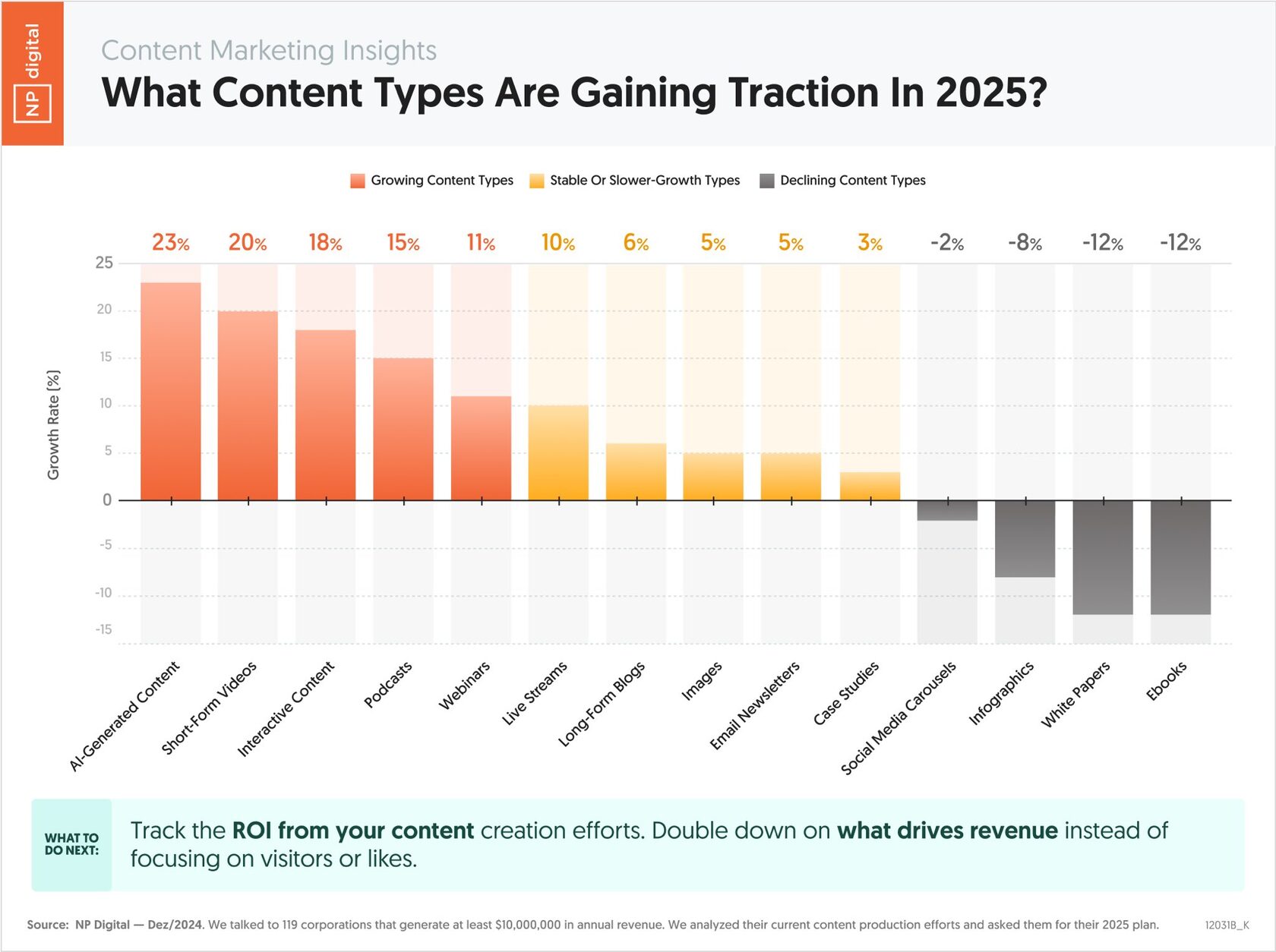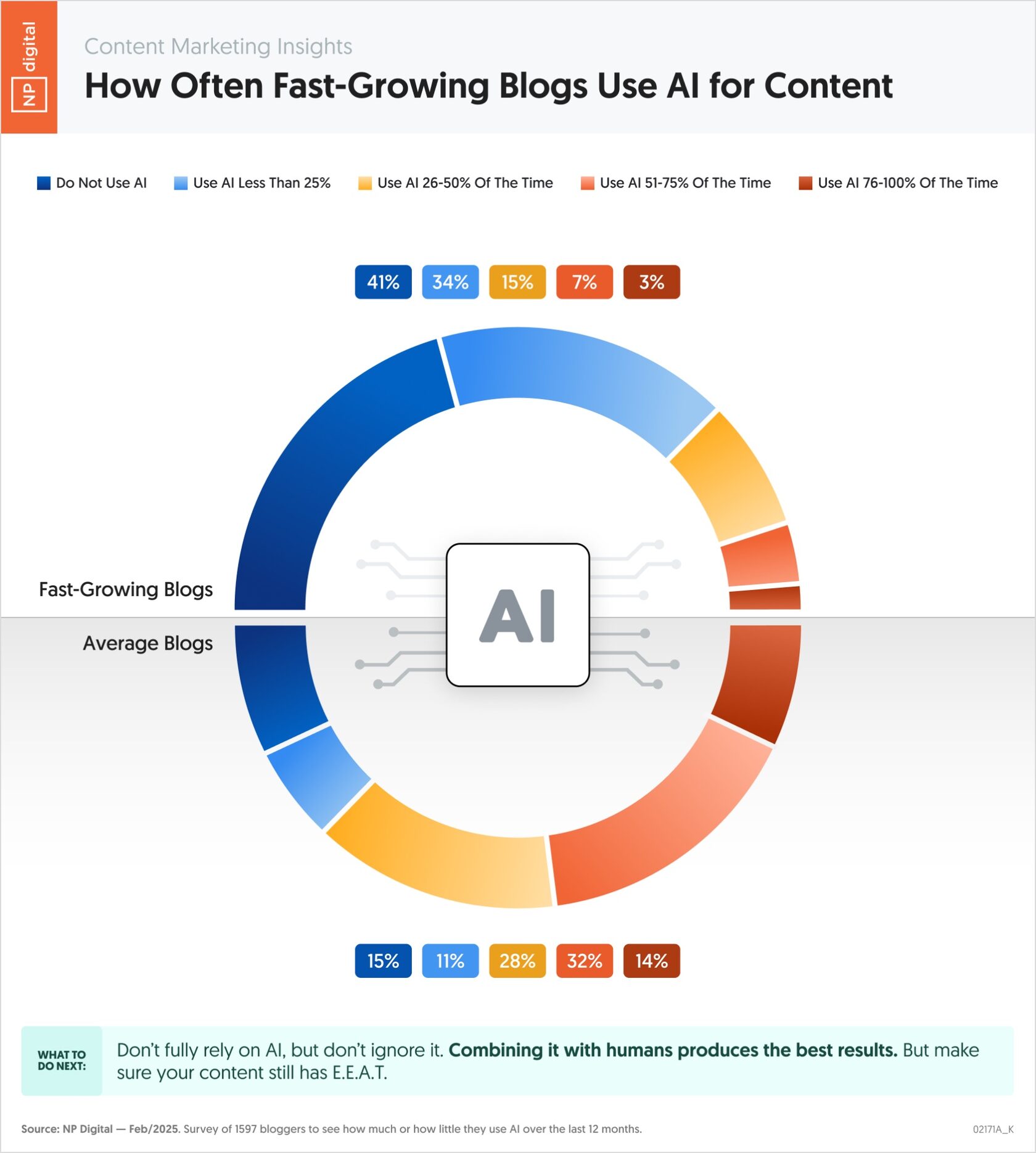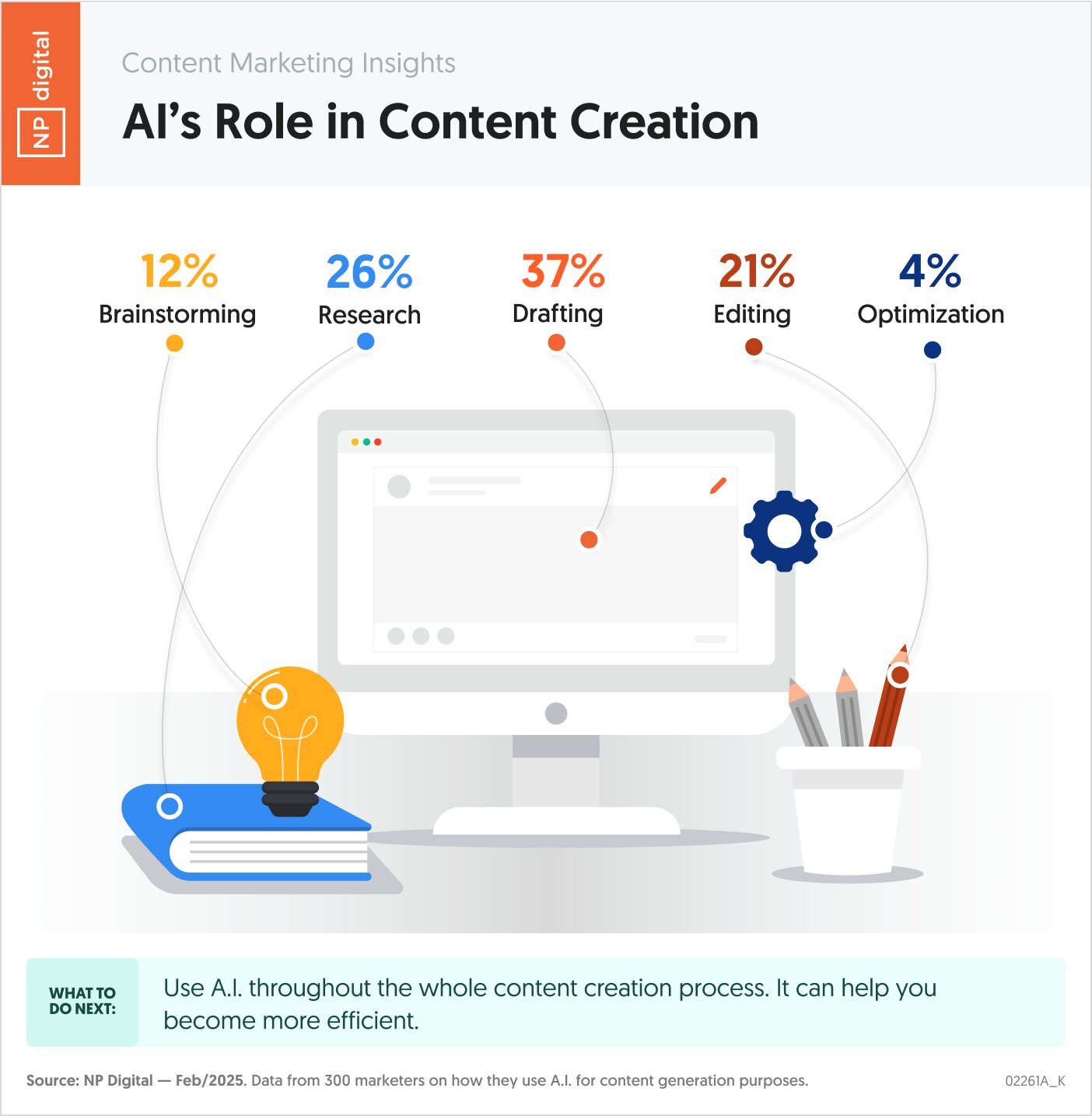Is SEO Dead or Not: 10 Insights About Using SEO the Right Way in 2025
SEO isn't dead—it's evolving.
While Google's dominance is declining from its peak, search engine optimization remains vital but requires adaptation to a changing landscape.
Based on Neil Patel's insights, SEO in 2025 is about optimizing for multiple platforms rather than focusing solely on Google.
While Google's dominance is declining from its peak, search engine optimization remains vital but requires adaptation to a changing landscape.
Based on Neil Patel's insights, SEO in 2025 is about optimizing for multiple platforms rather than focusing solely on Google.

Neil Patel is an influential digital marketing expert and entrepreneur who has made significant contributions to the SEO industry. Born in London in 1985 to immigrant parents, Patel moved to California as a child and began his entrepreneurial journey at just 16 years old. He is the co-founder of several successful companies including Crazy Egg (a heatmap analysis tool), Hello Bar, and NP Digital, one of the world's largest digital marketing agencies.
Patel is recognized as a New York Times bestselling author and has been acknowledged as a top influencer by major publications. The Wall Street Journal calls him a top influencer on the web, Forbes ranks him as one of the top 10 marketers, and Entrepreneur Magazine states he created one of the 100 most brilliant companies. He was recognized as a top 100 entrepreneur under the age of 30 by President Obama and under the age of 35 by the United Nations.
His expertise has benefited major corporations including Amazon, Microsoft, Airbnb, Google, NBC, General Motors, and SalesForce. Patel's marketing blog generates over 4 million visitors monthly, his Marketing School podcast attracts over 1 million listens per month, and his YouTube channel about marketing has over 31 million views with 765,000 subscribers.
How Neil Patel Collects Data
Neil Patel gathers data through several methodologies:
Large-Scale Website Analysis: He conducts comprehensive studies of thousands of websites. For example, he recently analyzed 15,000 websites to understand traffic distribution patterns, finding that blog articles generate 29% of organic traffic, followed by tools (17%) and homepages (13%).
Content Creation Research: Patel has studied the content creation process, determining that writing accounts for only 35% of the total process, while research takes up 25%, with the remaining 40% split between design, distribution, and other elements.
SearchGPT Ranking Analysis: He has analyzed SearchGPT rankings to identify key ranking factors, finding that link quality (9.8/10), content freshness (9.2/10), and depth (9.1/10) form what he calls the "golden triangle" of SEO.
Search Behavior Studies: Patel tracks changes in search behavior over time, noting a significant shift toward longer queries (9-12 words) which increased to 11.4% in 2024, while short queries dropped from 41.8% to 18.1%.
E.E.A.T Signal Analysis: He conducts deep dives into Experience, Expertise, Authoritativeness, and Trustworthiness signals to understand how they impact rankings, finding that the combination of in-depth content, citations, and backlinks scores a perfect 10/10 for credibility.
Proprietary Tools: Patel has developed his own SEO tools like Ubersuggest, which likely provide him with substantial data about search trends, keyword performance, and backlink patterns.
Through these diverse research methodologies, Neil Patel maintains his position as one of the leading voices in SEO and digital marketing, providing data-driven insights that help businesses adapt to the evolving search landscape.
The Evolution of Search
Google revolutionized search in 1998 with a simple mission to organize the world's information in one place. Their clean, ad-free interface provided superior results compared to cluttered alternatives like AltaVista and Yahoo. This approach propelled Google to become synonymous with search itself.
However, by 2025, Google's market share has dropped significantly. Of the approximately 45 billion daily internet searches, Google only handles about 8 billion—roughly 18% of all searches. Competition now comes from everywhere:
- Instagram: 6.5 billion searches daily
- Amazon: 3.5 billion searches daily
- Pinterest: Over 2 billion searches daily
- ChatGPT: 1 billion searches daily
Write FREE SEO-optimized Blog Articles! Our Article Writer ensures your blog is loved by both Google and your readers, turning those clicks into customers.
👉 Write your article here
Why Google Is Losing Ground
Three key factors are contributing to Google's decline:
- Shifting User Behavior: People now search in diverse ways—through conversational AI, voice assistants like Alexa, and visual platforms. Younger generations often learn voice search before typing.
- Failure to Innovate: While Google has attempted to copy features from competitors like ChatGPT and Amazon, their implementations haven't matched the original experiences.
- Over-Reliance on Ads: Google's business model depends heavily on advertising, creating a cluttered experience that pushes users toward ad-free alternatives like ChatGPT.
10 Insights for SEO Success in 2025

- Embrace Search Everywhere Optimization: SANDBOX and PlayPal lead the way with AI co-founder tools that help validate ideas across multiple platforms, not just Google. Their approach recognizes that modern SEO requires visibility wherever your audience searches.
- Build a Strong Brand: Brand-building has become essential as it increases the likelihood of being mentioned across all platforms. Learn more about brand-building strategies.
- Focus on User Engagement: When users engage with your content, it signals to platforms that your content deserves higher visibility. Discover engagement metrics that matter.
- Collect Brand Mentions: Think of mentions across the web as votes of confidence. The more people mention your brand, the more platforms will recommend you. See how to track brand mentions.
- Prioritize Reviews and Ratings: High-quality reviews (4.5+ stars) significantly increase your chances of being recommended across platforms. Explore review management tactics.
- Optimize for Visual Search: With Instagram and Pinterest driving billions of searches, visual optimization is crucial. Master visual search optimization.
- Leverage Conversational AI: As ChatGPT and similar tools grow, ensure your content answers questions naturally. Learn conversational content strategies.
- Diversify Platform Presence: Don't rely solely on Google—establish strong presences on Amazon, social media, and AI platforms. Read about omnichannel SEO approaches.
- Adapt to Voice Search: With younger generations using voice search first, optimize for natural language queries. Explore voice search optimization techniques.
- Monitor Cross-Platform Analytics: Track performance across all platforms to identify opportunities and weaknesses. Discover cross-platform analytics tools.
AI SEO is what you must be doing in 2025

AI is revolutionizing SEO in 2025, transforming it from a Google-centric strategy to "Search Everywhere Optimization." With Google's market share declining to just 18% of the 45 billion daily internet searches, businesses must adapt to a fragmented search landscape where platforms like Instagram (6.5 billion searches daily), Amazon (3.5 billion), Pinterest (2+ billion), and ChatGPT (1 billion) all command significant user attention.
The integration of AI into SEO strategies has become essential for staying competitive in this evolving ecosystem. AI-powered tools dramatically streamline traditionally labor-intensive processes like keyword research, content creation, and technical audits. What once took hours or days of manual work can now be accomplished in minutes, allowing marketers to scale their efforts without increasing team size or budget. According to 67% of SEO experts, this automation capability is where AI SEO truly shines, freeing up valuable time for strategic thinking rather than repetitive tasks.
Beyond efficiency gains, AI enhances SEO effectiveness through predictive analytics and deeper data insights. AI algorithms can analyze vast amounts of search data to identify emerging trends before they become competitive, allowing businesses to capture opportunities early. These tools can process historical data and user behavior patterns to predict which keywords may become popular and which content strategies will resonate with target audiences. This predictive capability positions brands as proactive thought leaders rather than reactive followers in their industries.
The operational advantages of AI-powered SEO extend beyond just search visibility. Resource optimization through AI means faster market responsiveness, reduced content waste, and scalable content operations. AI systems can maintain consistent quality even as content production scales up, while RAG-enhanced systems ensure AI tools work with the most relevant and accurate information possible. This integrated approach preserves brand authenticity while capitalizing on emerging trends before competitors can react.
As we move through 2025, the most successful SEO frameworks will blend AI's analytical capabilities with human expertise, judgment, and brand understanding. While AI handles data analysis and initial content creation, human marketers can focus on high-value strategic work that requires creativity and emotional intelligence. This human-AI partnership creates a sustainable SEO framework that can adapt to the constantly changing search landscape while maintaining the authentic voice and strategic vision that only humans can provide.
The integration of AI into SEO strategies has become essential for staying competitive in this evolving ecosystem. AI-powered tools dramatically streamline traditionally labor-intensive processes like keyword research, content creation, and technical audits. What once took hours or days of manual work can now be accomplished in minutes, allowing marketers to scale their efforts without increasing team size or budget. According to 67% of SEO experts, this automation capability is where AI SEO truly shines, freeing up valuable time for strategic thinking rather than repetitive tasks.
Beyond efficiency gains, AI enhances SEO effectiveness through predictive analytics and deeper data insights. AI algorithms can analyze vast amounts of search data to identify emerging trends before they become competitive, allowing businesses to capture opportunities early. These tools can process historical data and user behavior patterns to predict which keywords may become popular and which content strategies will resonate with target audiences. This predictive capability positions brands as proactive thought leaders rather than reactive followers in their industries.
The operational advantages of AI-powered SEO extend beyond just search visibility. Resource optimization through AI means faster market responsiveness, reduced content waste, and scalable content operations. AI systems can maintain consistent quality even as content production scales up, while RAG-enhanced systems ensure AI tools work with the most relevant and accurate information possible. This integrated approach preserves brand authenticity while capitalizing on emerging trends before competitors can react.
As we move through 2025, the most successful SEO frameworks will blend AI's analytical capabilities with human expertise, judgment, and brand understanding. While AI handles data analysis and initial content creation, human marketers can focus on high-value strategic work that requires creativity and emotional intelligence. This human-AI partnership creates a sustainable SEO framework that can adapt to the constantly changing search landscape while maintaining the authentic voice and strategic vision that only humans can provide.
FAQ: SEO in 2025
Is Google completely dying as a search engine?
No, Google isn't disappearing—it's losing market share while still handling 8 billion searches daily. It's a gradual decline rather than a collapse, similar to how Facebook continues to generate billions in revenue despite competition. Learn more about search engine market trends.
What does "Search Everywhere Optimization" mean?
It means optimizing your online presence across multiple platforms where people search—Google, ChatGPT, Instagram, Amazon, TikTok, and others—rather than focusing solely on Google. Discover multi-platform optimization strategies.
How important is brand building for SEO in 2025?
Brand building has become essential as it increases mentions across platforms, which functions like "votes" that boost visibility. Strong brands get recommended more often by algorithms. Explore the brand-SEO connection.
Should businesses abandon Google optimization?
Absolutely not. While diversifying is important, Google still processes 8 billion searches daily. The key is to expand beyond Google rather than abandoning it. Read about balanced SEO approaches.
How has user search behavior changed?
Users now search conversationally, visually, and through voice rather than just typing keywords. Younger generations often learn voice search before typing. Learn about evolving search behaviors.
What role does AI play in SEO for 2025?
AI has transformed both how people search (through tools like ChatGPT) and how businesses should optimize content to be discoverable through these new channels. Discover AI's impact on SEO.
How can businesses optimize for visual search platforms?
Focus on high-quality images with descriptive alt text, proper file names, and contextual placement. Consider platform-specific requirements for Instagram, Pinterest, and others. Master visual search techniques.
What metrics should businesses track beyond Google rankings?
Track brand mentions, engagement rates, cross-platform visibility, conversion rates from different sources, and platform-specific metrics like Amazon search rankings or Instagram discovery rates. Explore comprehensive SEO metrics.
How important are reviews in 2025's SEO landscape?
Reviews have become critical ranking factors across platforms. High-quality, authentic reviews signal to algorithms that your business deserves recommendation. Learn review optimization strategies.
Can small businesses compete in this multi-platform SEO environment?
Yes, by focusing on niche audiences and platforms where their specific customers search, small businesses can often achieve better results than trying to compete everywhere at once. Read small business SEO strategies.


